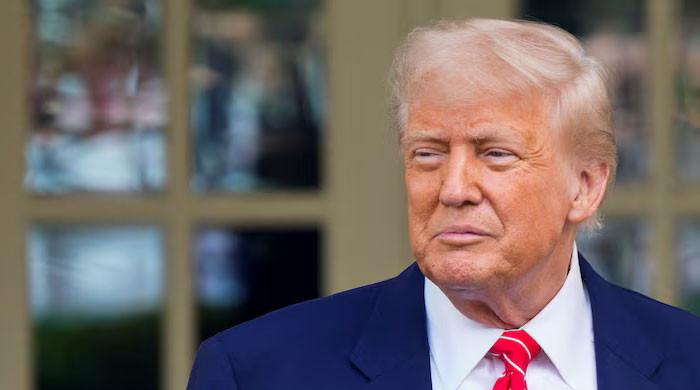The president of the United States, Donald Trump, promised on early Sunday a “total restart” in the commercial relations of the United States and China after the first day of conversations between the senior US and Chinese officials in Geneva aimed at disparaging tensions caused by their aggressive deployment of tariffs, AFP reported.
Trump praised the “very good” discussions and considered them “a total negotiated restart in a friendly but constructive way.”
“We want to see, for the sake of China and the United States, an opening of China to US businesses,” he said in a real social position on Saturday night in Washington.
He added: “Great progress made!”
The United States Treasury Secretary Scott Besent, and Commerce Representative Jamieson Greer met on Saturday with the Vice Prime Chinese Minister, he, Lifeng for the first negotiations of this type between the two largest economies in the world since Trump slapped China in China in China last month, which caused Beijing solid reprisals.
Discussions are expected to continue on Sunday in Geneva, according to a person familiar with conversations, who was not authorized to speak publicly.
“Contact in Switzerland is an important step to promote the resolution of the issue,” said a comment published by the state agency of China, Xinhua.
‘Descalado’
The closed door negotiations took place in the residence of the Swiss ambassador to the United Nations in Geneva, a discreet villa with blue sky blinds near a large park on the left bank of Lake Geneva.
Tariffs imposed by Trump in China since the beginning of the year currently totaling 145 percent, with cumulative tariffs from the United States in some Chinese products that reach an amazing 245 percent.
In retaliation, China slapped 125 percent of US goods, cementing what appears to be a close commercial embargo between the two countries.
Trump pointed out on Friday that it could reduce very high tariffs for Chinese imports, resorting to social networks to suggest that an “80% rate on China seems correct!”
“The president would like to resolve it with China,” said the United States Secretary of the United States, Howard Lutnick, Fox News. “He would like to unwishly the situation.”
Trump’s press secretary, Karoline Leavitt, clarified that the United States would not reduce tariffs unilaterally and that China would need to make concessions.
In any case, a movement at that level would be a symbolic gesture, since the rates would continue to be prohibited.
‘There are no winners’
Besent has said that meetings in Switzerland would focus on “decallation” and not on a “great business.”
Beijing has insisted that the United States must raise tariffs first and promised to defend their interests.
“Commercial wars and rates battles do not produce winners,” said a piece of comments directed by Xinhua on early Sunday.
The Vice Prime Minister of China entered the discussions promoted by the news on Friday that China exports increased last month despite the commercial war.
The unexpected development was attributed by experts to a wording of trade to Southeast Asia to mitigate US tariffs.
Besent and he met two days after Trump announced a commercial agreement with Great Britain, the first agreement with any country since he unleashed his bombing of global tariffs.
The five -page agreement and not binding with London confirmed to nerve investors that the United States is willing to negotiate the specific relief of the recent tasks sector, in this case, in British cars, steel and aluminum.
In return, Great Britain agreed to open its markets to beef and other agricultural products.
But an initial 10 percent tax in most British products remained intact and Trump remains “committed” to keeping it in place for other countries, Leavitt told journalists on Friday.
A few hours later, Trump seemed to contradict her, which suggests that there could be some flexibility to the baseline, but only if the right agreements could be reached.
“There could be an exception at some point. We’ll see,” he said.
“If someone did something exceptional for us, that is always possible.”




